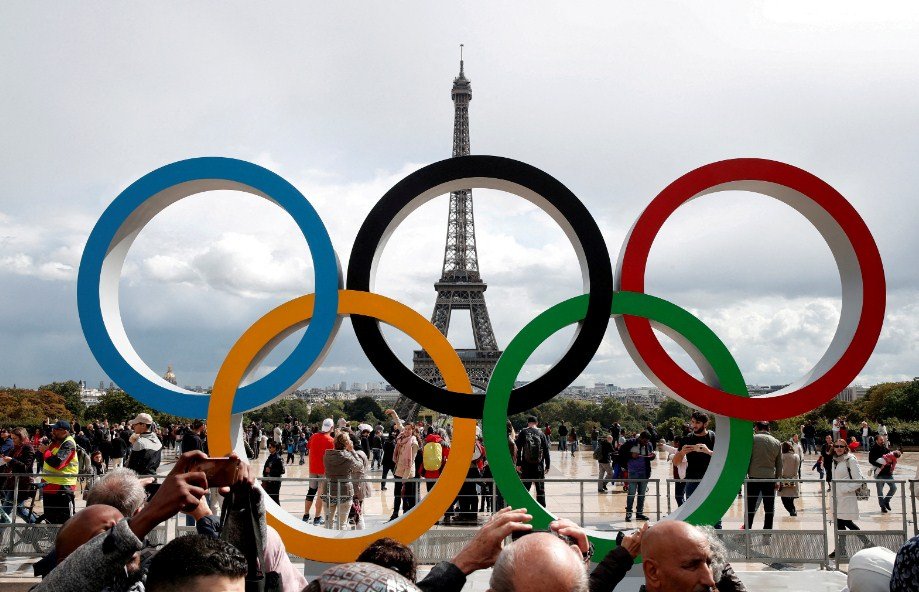The International Olympic Committee (IOC) has issued a statement on the anniversary of Russia’s invasion of Ukraine, saying that the Olympic Games can build bridges and promote peace, despite calls for a ban on Russian and Belarusian athletes for the 2024 Paris Olympics.
IOC reaffirms solidarity with Ukrainian athletes
The IOC said it “reaffirms its unwavering solidarity with the Ukrainian athletes”, adding that it wants to see a strong team from the National Olympic Committee of Ukraine at the Paris 2024 and the Milano Cortina 2026 Games. The IOC also expressed its condolences to the families of the victims of the conflict, which began on 24 February 2022 and has claimed more than 10,000 lives.
The IOC said it has provided humanitarian and financial support to the Ukrainian Olympic movement, as well as scholarships and training opportunities for Ukrainian athletes. It also said it has facilitated the participation of Ukrainian athletes in international competitions, despite the challenges posed by the pandemic and the political situation.
IOC says Olympics can open the door to dialogue and peace-building
The IOC said the Olympic Games “cannot prevent wars and conflicts” or “address all the political and social challenges in our world”, but they can “set an example for a world where everyone respects the same rules and one another”. The IOC said the Olympics can “inspire us to solve problems by building bridges, leading to better understanding among people”.
The IOC said it has witnessed the power of the Olympic spirit in previous editions of the Games, where athletes from South and North Korea, Israel and Palestine, Armenia and Azerbaijan, and other countries in conflict have competed peacefully and respectfully. The IOC said it has also used the Olympic platform to advocate for human rights, gender equality, diversity, and inclusion.
The IOC said it believes that “no athlete should be prevented from competing just because of their passport” and that it will “explore a pathway” for the participation of Russian and Belarusian athletes as neutrals in the Paris 2024 Games, provided they meet certain criteria and do not support the war in Ukraine. The IOC said it will consult with the relevant stakeholders and announce its decision in due course.
IOC faces criticism and boycott threats over its stance
The IOC’s statement has been met with criticism and condemnation by some countries and organisations, who have called for a complete ban on Russian and Belarusian athletes for the Paris 2024 Games. They argue that the IOC’s stance is not credible and that it endorses Russia’s aggression and violation of international law.
The UK, France, Germany, Poland, the US, Canada, and 30 other countries have pledged to support an ongoing ban on Russian and Belarusian athletes, which was imposed by the IOC following the invasion of Ukraine and upheld for the Beijing 2022 Winter Olympics and Paralympics. The UK culture secretary Lucy Frazer said the IOC’s plans were “not credible” and that the UK will not compromise on its principles.
Ukraine, which was not part of the summit, has threatened to boycott the Paris 2024 Games if the IOC allows Russian athletes to compete. Ukraine’s president Volodymyr Zelensky said Russian participation at the Olympics “cannot be covered up with pretend neutrality or a white flag” and that Russia has “no place at sports and Olympic competitions” while the invasion continues.
The mayor of Paris, Anne Hidalgo, has also expressed her opposition to Russia’s participation at the 2024 Games, saying that Paris stands with Ukraine and that the city will not welcome those who violate human rights and international law.
Athletes for Ukraine and Global Athlete, two associations representing athletes’ interests, have also issued a joint statement, saying that the IOC’s decision shows that it “endorses Russia’s brutal war and invasion of Ukraine” and that it “betrays the Olympic values and the Olympic Charter”. They said the return of Russian and Belarusian athletes to international competition will “bolster the war effort and distract from the atrocities in Ukraine”.

